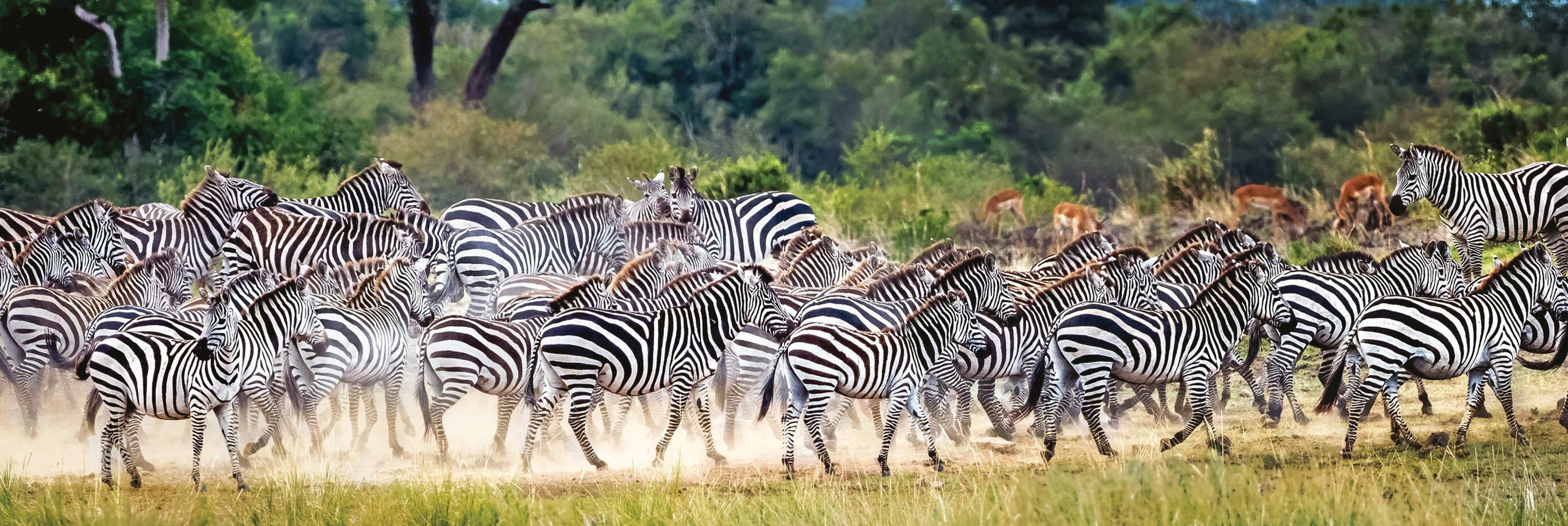يحاول ذهب - حر
Animal migrations
Issue 72
|The Week Junior Science+Nature UK
Discover the secrets behind nature's greatest wonder
-

As the seasons are starting to change around the world, the animal kingdom is on the move. Creatures of all shapes and sizes, from humpback whales to butterflies, embark on epic journeys to find food, escape cold weather or find a mate. Animal migration is one of nature’s great wonders, but how do animals know when it’s time to set off on their journey, or where they need to go? Once they’ve worked out their destination, how do they know how to get there? Scientists have been puzzled by these questions for many years.
Embarking on an adventure
Migration is a behavioural pattern where animals travel from one habitat to another in search of something. It happens seasonally, and usually involves a return journey. These journeys can be by land, sea or air. One of the main reasons behind animal migration is the search for food. Animals like gazelles, wildebeests and zebras migrate in huge herds during dry seasons to look for fresh grass to eat and water to drink.
هذه القصة من طبعة Issue 72 من The Week Junior Science+Nature UK.
اشترك في Magzter GOLD للوصول إلى آلاف القصص المتميزة المنسقة، وأكثر من 9000 مجلة وصحيفة.
هل أنت مشترك بالفعل؟ تسجيل الدخول
المزيد من القصص من The Week Junior Science+Nature UK

The Week Junior Science+Nature UK
FIGHTING THE FREEZE
Claire Karwowski uncovers nature's wildest ways of fighting the winter freeze.
6 mins
Christmas 2025
The Week Junior Science+Nature UK
Cook up bioplastic decorations
Make your own eco-friendly ornaments.
1 min
Christmas 2025

The Week Junior Science+Nature UK
Should we switch off Christmas lights?
They brighten up the festive season, but they can have a negative impact on the environment.
1 mins
Christmas 2025
The Week Junior Science+Nature UK
Three spectacular illuminations
Glow Wild, Wakehurst
1 min
Christmas 2025

The Week Junior Science+Nature UK
THE LAST DAYS OF POMPEII
For the first time, an immersive exhibition about the destruction of the ancient Roman city of Pompeii has opened in London.
1 min
Christmas 2025

The Week Junior Science+Nature UK
Wildlife watch
Jenny Ackland unveils a winter wonderland of natural delights this festive season.
1 mins
Christmas 2025
The Week Junior Science+Nature UK
Make Snow globes
Create the perfect Christmas gift.
1 min
Christmas 2025

The Week Junior Science+Nature UK
Maggie Aderin-Pocock
Meet the scientist \"blasting off into space\" at the Christmas Lectures.
3 mins
Christmas 2025
The Week Junior Science+Nature UK
Make vegan eggnog
Whip up a dairy-free festive winter warmer that is perfect for cold nights.
1 min
Christmas 2025

The Week Junior Science+Nature UK
Octopuses
Meet the colour-changing, shape-shifting, fortune-telling aliens of the seas.
2 mins
Christmas 2025
Listen
Translate
Change font size
